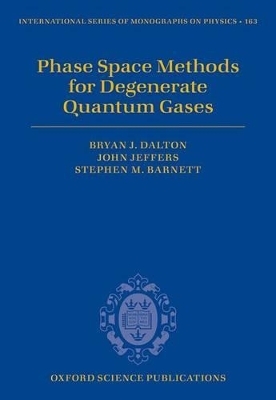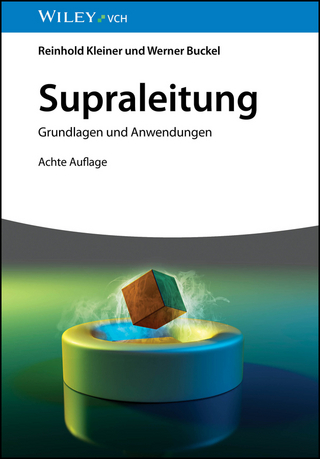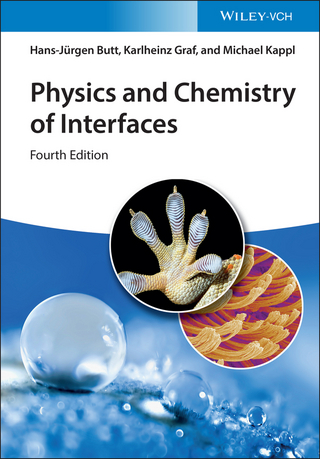
Phase Space Methods for Degenerate Quantum Gases
Oxford University Press (Verlag)
978-0-19-956274-9 (ISBN)
Recent experimental progress has enabled cold atomic gases to be studied at nano-kelvin temperatures, creating new states of matter where quantum degeneracy occurs - Bose-Einstein condensates and degenerate Fermi gases. Such quantum states are of macroscopic dimensions. This book presents the phase space theory approach for treating the physics of degenerate quantum gases, an approach already widely used in quantum optics. However, degenerate quantum gases involve massive bosonic and fermionic atoms, not massless photons.
The book begins with a review of Fock states for systems of identical atoms, where large numbers of atoms occupy the various single particle states or modes. First, separate modes are considered, and here the quantum density operator is represented by a phase space distribution function of phase space variables which replace mode annihilation, creation operators, the dynamical equation for the density operator determines a Fokker-Planck equation for the distribution function, and measurable quantities such as quantum correlation functions are given as phase space integrals. Finally, the phase space variables are replaced by time dependent stochastic variables satisfying Langevin stochastic equations obtained from the Fokker-Planck equation, with stochastic averages giving the measurable quantities.
Second, a quantum field approach is treated, the density operator being represented by a distribution functional of field functions which replace field annihilation, creation operators, the distribution functional satisfying a functional FPE, etc. A novel feature of this book is that the phase space variables for fermions are Grassmann variables, not c-numbers. However, we show that Grassmann distribution functions and functionals still provide equations for obtaining both analytic and numerical solutions. The book includes the necessary mathematics for Grassmann calculus and functional calculus, and detailed derivations of key results are provided.
Bryan Dalton obtained a PhD degree in 1966 from Monash University. Following postdoctoral positions at University of Chicago and Australian National University, he joined the Department of Physics, University of Queensland in 1970, retiring as a Reader in 2000. His research was in theoretical quantum optics on topics such as non-classical states of light, coherent population trapping, laser-induced continuum structures, quantum beats, squeezed light spectroscopy and macroscopic cavity quantum electrodynamics. After 2000, he held research fellow positions at University of Sussex and Swinburne University of Technology, where he is currently an Adjunct Professor. He recently spent six months at University College, Cork as an ETS Walton Visiting Fellow. His more recent research interests have included decoherence effects in quantum computers, phase space theory in quantum and atom optics for Bose-Einstein condensates and Fermi gases, and entanglement theory for identical particle systems. John Jeffers is a Reader in the Physics Department at the University of Strathclyde and has been a researcher in quantum optics for twenty years. He obtained his PhD in Theoretical Physics from the University of Essex in 1993. Since then his research interests have included quantum dielectrics, quantum imaging, retrodictive quantum theory, quantum communication, quantum optical amplification and degenerate quantum gases. Stephen Barnett has been Professor of Quantum Optics since 1995, first at the University of Strathclyde and more recently at the University of Glasgow. He is best known for his discovery, with David Pegg, of the quantum phase operator, but he has wide-spread interests in quantum optics, quantum information, optics and, of course, cold-atom physics. His work has been recognised by the Royal Society, the Royal Society of Edinburgh and the Optical Society of America, all of which have elected him a Fellow. He was awarded the 2013 Dirac Medal and Prize for theoretical physics by the Institute of Physics.
1. Introduction ; 2. States and Operators ; 3. Complex Numbers and Grassmann Numbers ; 4. Grassmann Calculus ; 5. Coherent States ; 6. Canonical Transformations ; 7. Phase Space Distributions ; 8. Fokker-Planck Equations ; 9. Langevin Equations ; 10. Application to Few Mode Systems ; 11. Functional Calculus for C-Number and Grassmann Fields ; 12. Distribution Functionals in Quantum-Atom Optics ; 13. Functional Fokker-Planck Equations ; 14. Langevin Field Equations ; 15. Application to Multi-Mode Systems ; 16. Further Developments ; Appendix A: Fermion Anti-Commutation Rules ; Appendix B: Markovian Master Equation ; Appendix C: Grassmann Calculus ; Appendix D: Properties of Coherent States ; Appendix E: Phase Space Distributions for Bosons and Fermions ; Appendix F: Fokker-Planck Equations ; Appendix G: Langevin Equations ; Appendix H: Functional Calculus for Restricted Boson and Fermion Fields ; Appendix I: Applications to Multi-Mode Systems
| Erscheint lt. Verlag | 4.12.2014 |
|---|---|
| Reihe/Serie | International Series of Monographs on Physics ; 163 |
| Verlagsort | Oxford |
| Sprache | englisch |
| Maße | 175 x 255 mm |
| Gewicht | 868 g |
| Themenwelt | Naturwissenschaften ► Physik / Astronomie ► Atom- / Kern- / Molekularphysik |
| Naturwissenschaften ► Physik / Astronomie ► Festkörperphysik | |
| Naturwissenschaften ► Physik / Astronomie ► Optik | |
| Naturwissenschaften ► Physik / Astronomie ► Quantenphysik | |
| ISBN-10 | 0-19-956274-1 / 0199562741 |
| ISBN-13 | 978-0-19-956274-9 / 9780199562749 |
| Zustand | Neuware |
| Haben Sie eine Frage zum Produkt? |
aus dem Bereich


